📚 20 Books mentioned in "Timothy Denevi on Hunter S Thompson and the Art of Journalism" of The Daily Stoic
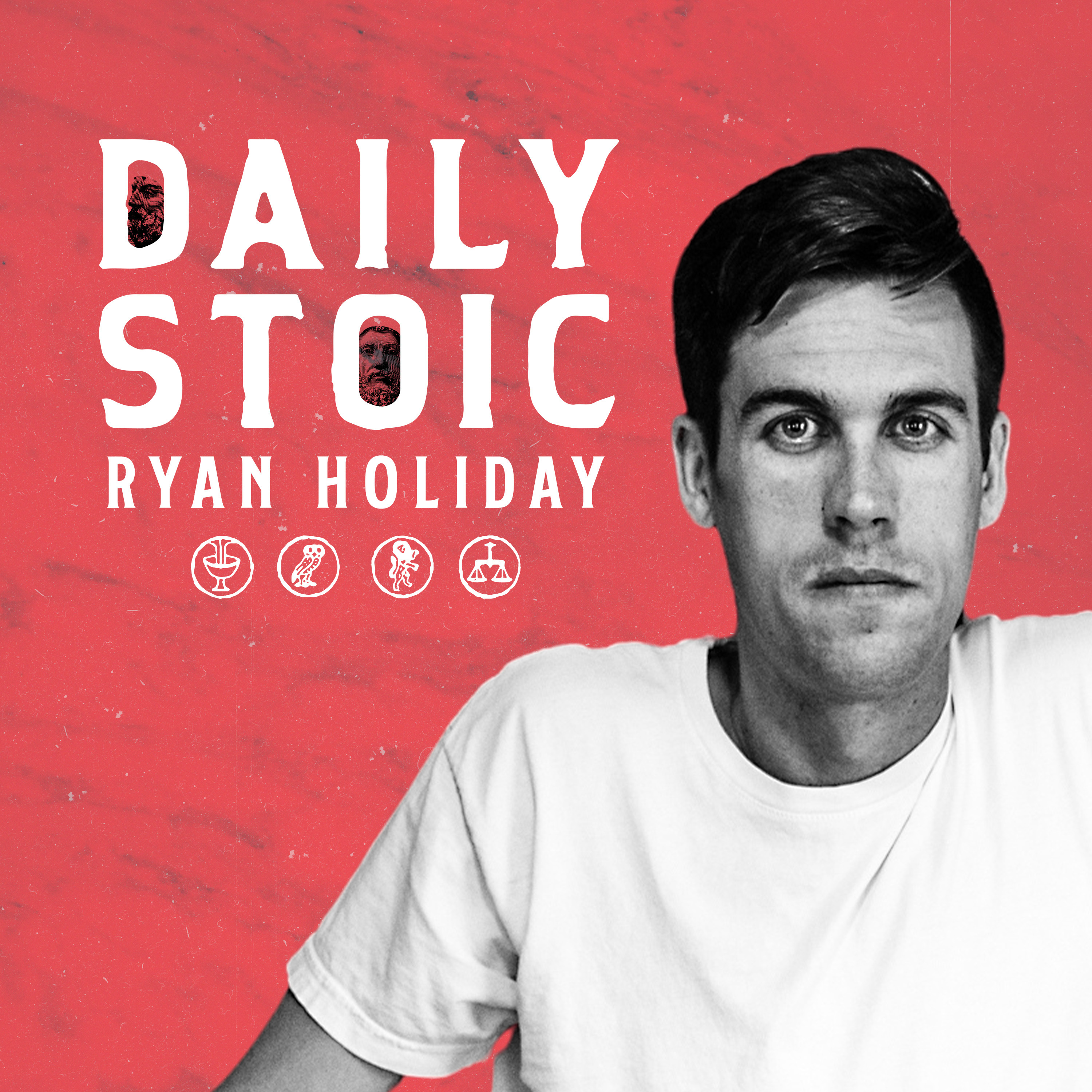
Podcast: The Daily Stoic
Episode: Timothy Denevi on Hunter S Thompson and the Art of Journalism
Published on November 18, 2023
Here’s a list of all the books mentioned in this episode. Click on the links to watch specific excerpts on YouTube and feel free to purchase the books if they caught your interest!
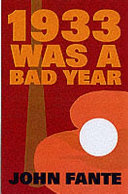
1933 was a Bad Year
Buy 1933 was a Bad Year by John Fante on Amazon
Uh, crazy story which we should talk about; he has a bunch, maybe '1933 was a Bad Year,' 'The Road to Los Angeles.' He has a couple of books about his journey; he's seen as an LA writer, but he's from Colorado, and so it's just a weird snapshot to have the Italian-American experience from Colorado to LA, then Northern California.
In the podcast, the host refers to '1933 was a Bad Year' as one of John Fante's notable works, discussing his perspective on the Italian-American experience and his journey from Colorado to Los Angeles.
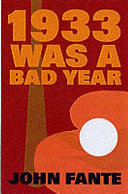
1933 was a Bad Year
Buy 1933 was a Bad Year by John Fante on Amazon
Um, I think you would like '1933 was a Bad Year' because it's about Fante as a kid; it's the youth Italian-American experience. But 'Ask the Dust' is fascinating in that the premise of 'Ask the Dust' is Artur Obini, a delusional, narcissistic aspiring writer who you can't help but relate to as a writer, falls in love with this Mexican girl who works at a diner in Bunker Hill, and she's racist towards him, and he's racist toward her.
The guest recommends Fante's book '1933 Was a Bad Year' to the host, describing it as a story about Fante's youth in the Italian-American community.
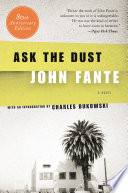
Ask the Dust
Buy Ask the Dust by John Fante on Amazon
No, I'm going to read 'Ask the Dust.' I have that in the story; it's one of the great novels of all time. Uh, crazy story which we should talk about; he has a bunch, maybe '1933 was a Bad Year,' 'The Road to Los Angeles.'
The podcast host expresses his plan to read 'Ask the Dust' by John Fante, describing it as one of the great novels of all time.
And the legend, it's true and not true; but the legend is 'Ask the Dust' sells out its first printing or is selling through its first printing in a good clip. It would have been a huge book; this distracted the publisher, sucks up its marketing budget, which they spend on legal fees, which they then lose, and 'Ask the Dust' is then forgotten until, yeah, 1970, whatever, when Charles Bukowski discovers the lone surviving copy in the Los Angeles Public Library.
The guest discusses the challenges faced by John Fante's novel 'Ask the Dust' during its publication, highlighting how the book initially sold well but eventually became overlooked.
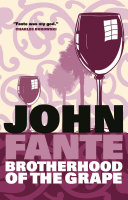
Brotherhood Of The Grape
Buy Brotherhood Of The Grape by John Fante on Amazon
Yeah, and then the other writer that I'm slightly more fanboyish about than Didion is John Fante. I just read 'Brotherhood of the Grapes.' It's about Roseville?
The guest expresses their admiration for author John Fante and mentions that they have just finished reading his book, 'Brotherhood of the Grapes', which they describe as being about Roseville.
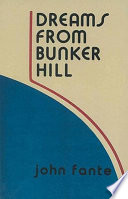
Dreams from Bunker Hill
Buy Dreams from Bunker Hill by John Fante on Amazon
And then after—this is way nerdier than people listen to—but after, after Bukowski rediscovers 'Ask the Dust' as Fante is dying of diabetes, they’re like chopping off his limbs as blind; he dictates to his wife the sequel of 'Dreams from Bunker Hill.' How's that, 'cause that's done; it's not done writing out; he told his wife the novel while he was…
The guest explains that John Fante dictated the sequel to 'Ask the Dust,' titled 'Dreams from Bunker Hill,' to his wife while he was suffering from diabetes and losing his sight.
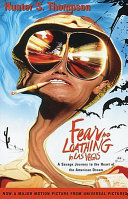
Fear and Loathing in Las Vegas
Buy Fear and Loathing in Las Vegas by Hunter S. Thompson on Amazon
I think about that Hunter Thompson speech all the time for people who haven’t read 'Fear and Loathing in Las Vegas.' Maybe you've seen the movie; you think it's this book about debauchery and partying and craziness when really it's this sort of elegy and a sad meditation on the failure of all the idealism of the 60s.
The guest discusses Hunter S. Thompson's book 'Fear and Loathing in Las Vegas,' suggesting that while many perceive it as a tale of debauchery and party culture, it is, in fact, a poignant reflection on the disappointments of the 1960s idealism.
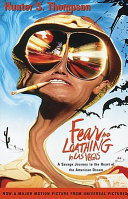
Fear and Loathing in Las Vegas
Buy Fear and Loathing in Las Vegas by Hunter S. Thompson on Amazon
I didn't, until I read your book, get my sense of him as the sort of political idealist who basically has his heart broken over and over again and then just decides ironically to do what he talks about in, uh, 'Fear and Loathing,' which is, uh, make a beast of yourself to get rid of the pain of being a man. Yeah, you know, and I think that again, probably with you too, we got the trickle-down effect of the 1960s growing up; many of our teachers may have been at San Francisco State, you know, or on the the West Coast barricades during all of that, um, University of California upheaval.
The guest references 'Fear and Loathing in Las Vegas' as an illustration of Hunter S Thompson's approach to dealing with the pain associated with being a man and a political idealist.
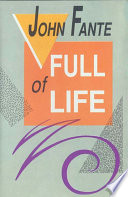
Full of Life
Buy Full of Life by John Fante on Amazon
Um, his short stories are good; um, he wrote this book—'Full of Life,' um which was his most popular book; it wasn't a popular book, but it gets turned into a big movie that basically pays for everything. He once—so basically what happens is once 'Ask the Dust' is destroyed, he is sort of heartbroken and then just becomes a well-paid but little-known screenwriter; he has a nice house in Malibu paid for by movies that were never made, and was a frustrated novelist and sort of a drunk and a tortured dude as a result of this experience.
The guest discusses John Fante's book 'Full of Life', noting that it was his most popular work and that it was adapted into a film.
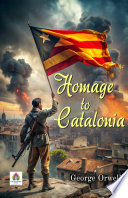
Homage to Catalonia
Buy Homage to Catalonia by George Orwell on Amazon
I love 'Homage to Catalonia,' but there are parts of it where he talks about what it was like as a colonial administrator, knowing colonialism was wrong. It’s a lot like Thompson—he was caught up in enforcing it, and it shows how it destroys him as a way to argue against it. Thompson does a very good job at illustrating this.
The guest expresses their admiration for 'Homage to Catalonia' by George Orwell, highlighting parts where Orwell reflects on his experiences as a colonial administrator and the moral conflicts he faced. They draw a parallel between Orwell and Hunter S. Thompson, noting how both authors' experiences illustrate the damaging effects of colonialism.
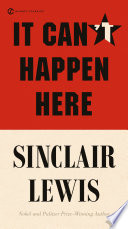
It Can't Happen Here
Buy It Can't Happen Here by Sinclair Lewis on Amazon
Right, the best way I understood Trump was Sinclair Lewis's It Can't Happen Here. And I feel like your book actually, which comes, which is basically the generation right after that book, like you’re talking about, no longer does the fascist movement look like Mussolini or Hitler. It’s figured out how to dress better; it’s figured out how to co-opt certain kinds of speech and language.
The guest explains that their understanding of Donald Trump was shaped by reading Sinclair Lewis's book 'It Can't Happen Here', highlighting its relevance to contemporary issues.
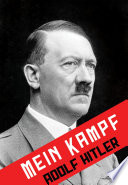
Mein Kampf
Buy Mein Kampf by Adolf Hitler on Amazon
And that same year, Stackpole, which was also more of a military publisher, they did a lot of books in military history, they published an unauthorized edition of 'Mein Kampf.' Oh wow, Hitler being...then like it'd be like if Putin had written a book and they felt like people should read it.
During the conversation, the host and guest reflect on how Stackpole, a military publisher, released an unauthorized edition of Hitler's 'Mein Kampf' around the same time as Fante's 'Ask the Dust'. This situation raised concerns regarding the impact on the latter's publication.
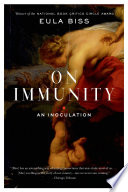
On Immunity
Buy On Immunity by Eula Biss on Amazon
Thereâs a great book, 'Immunity' by Eula Biss, and it was the first time I began to understand immunity is not about you; itâs about participation. She articulated that while she was writing it, especially during her pregnancy in the 2010s, and it was the first time I understood immunity is about how participation and how we come together to get a different outcome than we would individually.
The guest references Eula Biss's book 'Immunity' to illustrate the idea that immunity is about collective participation rather than individual experience.
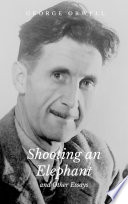
Shooting an Elephant and Other Essays
Buy Shooting an Elephant and Other Essays by George Orwell on Amazon
I teach 'Shooting an Elephant' today by George Orwell. I love 'Homage to Catalonia,' but there are parts of it where he talks about what it was like as a colonial administrator, knowing colonialism was wrong. It’s a lot like Thompson—he was caught up in enforcing it, and it shows how it destroys him as a way to argue against it.
The guest discusses teaching 'Shooting an Elephant' by George Orwell, drawing parallels between the themes of colonialism in the work and the experiences of Hunter S. Thompson.
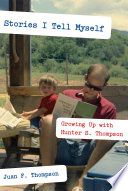
Stories I Tell Myself
Buy Stories I Tell Myself by Juan F. Thompson on Amazon
His son wrote a great book called 'Stories I Tell Myself,' which tries to encapsulate Thompson's struggle. I attempted to conclude with Nixon leaving, but the years after were really tough because they reflect our current understanding of alcoholism, coupled with how Thompson would take Dexedrine. There was a price to be paid later, and his son writes about getting hooked on the substance.
The guest discusses 'Stories I Tell Myself,' a book authored by Hunter S. Thompson's son, Juan Thompson, which delves into the struggles of his father.
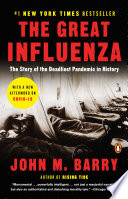
The Great Influenza
Buy The Great Influenza by John M. Barry on Amazon
So that’s why I loved your book; so like I have found like, okay, the best book I read during COVID was John M. Barry’s book, The Great Influenza. Oh wow, right? So you’re reading about the Spanish flu and you’re like, okay, here’s everything that’s true.
The guest shares that their favorite book read during COVID was 'The Great Influenza' by John M. Barry, emphasizing its exploration of the Spanish flu and how it presents important truths.
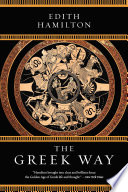
The Greek Way
Buy The Greek Way by Edith Hamilton on Amazon
Think about two years later, on the night that Martin Luther King was shot, Bobby Kennedy—who was a Philistine for most of his life—began to read the Greeks and read 'The Greek Way.' I have the book in the bookstore, by Edith what? Edith Wharton.
The discussion includes Bobby Kennedy's experience of reading 'The Greek Way,' highlighting his shift towards engaging with Greek literature.
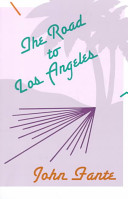
The Road to Los Angeles
Buy The Road to Los Angeles by John Fante on Amazon
Uh, crazy story which we should talk about; he has a bunch, maybe '1933 was a Bad Year,' 'The Road to Los Angeles.' He has a couple of books about his journey; he's seen as an LA writer, but he's from Colorado, and so it's just a weird snapshot to have the Italian-American experience from Colorado to LA, then Northern California.
In the discussion, the host refers to 'The Road to Los Angeles' as one of John Fante's notable books, highlighting his unique perspective as an Italian-American writer from Colorado.
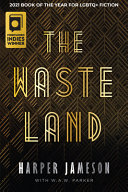
The Wasteland
Buy The Wasteland by Harper H. Jameson, W. A. W. Parker on Amazon
There’s a book titled 'The Wasteland' about Ezra Pound and T.S. Eliot, which came out recently, analyzing the deterioration of Ezra Pound's mind as he fell into anti-Semitic conspiracy theories. Anti-Semitism may be the oldest virus; it infects different Romans and emperors at various times, different leaders at different times.
The guest discusses a recently published book titled 'The Wasteland', which explores Ezra Pound's decline into anti-Semitism and his relationship with T.S. Eliot.
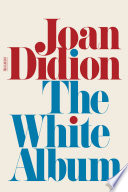
The White Album
Buy The White Album by Joan Didion on Amazon
And I mean, it reminds me of, in kind of a tangential way, but you know the passage in Didion's The White Album where she’s with, uh, Jim Morrison? Yeah, you know, and you know how she writes about it. It’s, she goes to the recording session, they’re waiting for Jim Morrison, he shows up, he doesn’t talk to anybody, you know?
The host references a passage in Joan Didion's book 'The White Album' about a recording session with Jim Morrison.
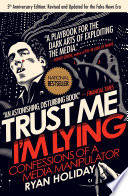
Trust Me, I'm Lying
Buy Trust Me, I'm Lying by Ryan Holiday on Amazon
Well, I I actually, this is the epigraph—is to trust, me, lying is the James Agy quote where it’s basically saying that fundamentally journalism is a form of lying because you’re taking disparate events and coordinating them to tell a story that you want to tell. And you’re leaving things out, and then there’s that famous, what’s her name, the journalist Janet Malcolm thing about how fundamentally journalism is also this act of aggression and hostility.
The guest references the epigraph of 'Trust Me, I'm Lying: Confessions of a Media Manipulator' and discusses how journalism can manipulate the truth by selectively coordinating events to fit a narrative.
